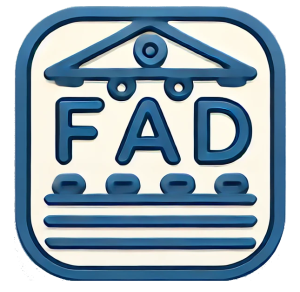The present degree course in Medicine prescribes 3 ETC and is organized into both frontal lecturers and practice. Thus, it will be divided into 1 ETC for English Language and 2ETC for English for Special Purposes.
B1 of the Common European Framework (CEFR) is the starting level required, being B2 the final level to gain.Therefore, the program is based on the review of English language functions, grammar structures as well as to the introduction of the main lexical and structural elements of the English language for Medicine.
The students will have a written test based on language grammar and structures, and topics related to medical English.
OBJECTIVES
The course on English aims to develop language competences to comprehend and produce text in English for medicine, according to the syllabus of the degree course in Medicine. Therefore, the curriculum, based on the parameter of Common European Framework for Foreign Languages (Strasbourg 1998) will give the student the possibility to learn:
Communicative competence
Micro-language of Medicine
Authentic material and medicine matters field necessary to practice the four basic language skills (listening, speaking, reading, writing)
CONTENT
The course aims to provide participants with the basic knowledge necessary for the analysis of a realia in Medicine.
The whole English language structures and functions will be reviewed.
Detailed Grammar programme:
Analysing the English sentence
The main parts of a sentence
To be; subject pronouns; demonstratives
To have – possession -
Possessives, reflexives, interrogatives
The Present Continuous
The Present Simple
Prepositions of Place and Time
The Imperative
The Future - four different ways to express the idea of future -
Past simple and past continuous
Present perfect and past perfect
The noun
Articles
Adjectives
Comparatives and superlatives
Indefinite pronouns and adjectives
Interrogative pronouns and adjectives
Modal Verbs I (potere)
Modal verbs II (dovere)
Conditional sentences and if clauses
The duration form
The passive voice
The subjunctive
Connectors
Direct and reported speech
In order to code texts the learner have to decode many of them, so the course will give the students all the necessary tools to do that, such as how to have a factual text analysis on reports with topics ABOUT MEDICINE.
Thus, the students will be given the following extra materials:
How to use Professional English ( meaning-pronunciation and translation into Italian); Reading skills - pre-reading activities; skimming, scanning, intensive and extensive reading. Efficient reading strategies ; Factual text Analysis; Essential definition for what a text is; Types of text –Identifying purpose and text convention; Med and Scientific English: The history of medical English; Communicating with the patient; Spelling; Pronunciation; Medical Specialties.
As regards English for Special Purposes, students are required to learn medical English through specific and authentic readings of the subject, with activities on prefixes and suffixes, phrasal verbs, compound nouns, acronyms, as well as through grammar, spelling and pronunciation differences between British English and American English. Particular attention will be given to the use of the passive form, the abolition of the relative clause in favour of the sentence construction on the left of the key word, typical of technical and scientific English.
TEXTBOOK
Clare, A. Wilson, J. J., Speak out 3rd Edition B1 (Pearson).
ONLINE https://englishconnect.pearson.com/courses/5328528132276224/next/~courses~list~type~all
Further materials will be provided by the tutor and shared on Moodlefad.unich.
EXAM
Written test
TIMETABLE
MON 9.00-12.00
(AULA MAGNA)
- Teacher: Maria Luigia Di Nisio
- Teacher: Serenella Massidda
